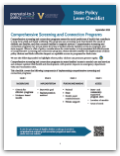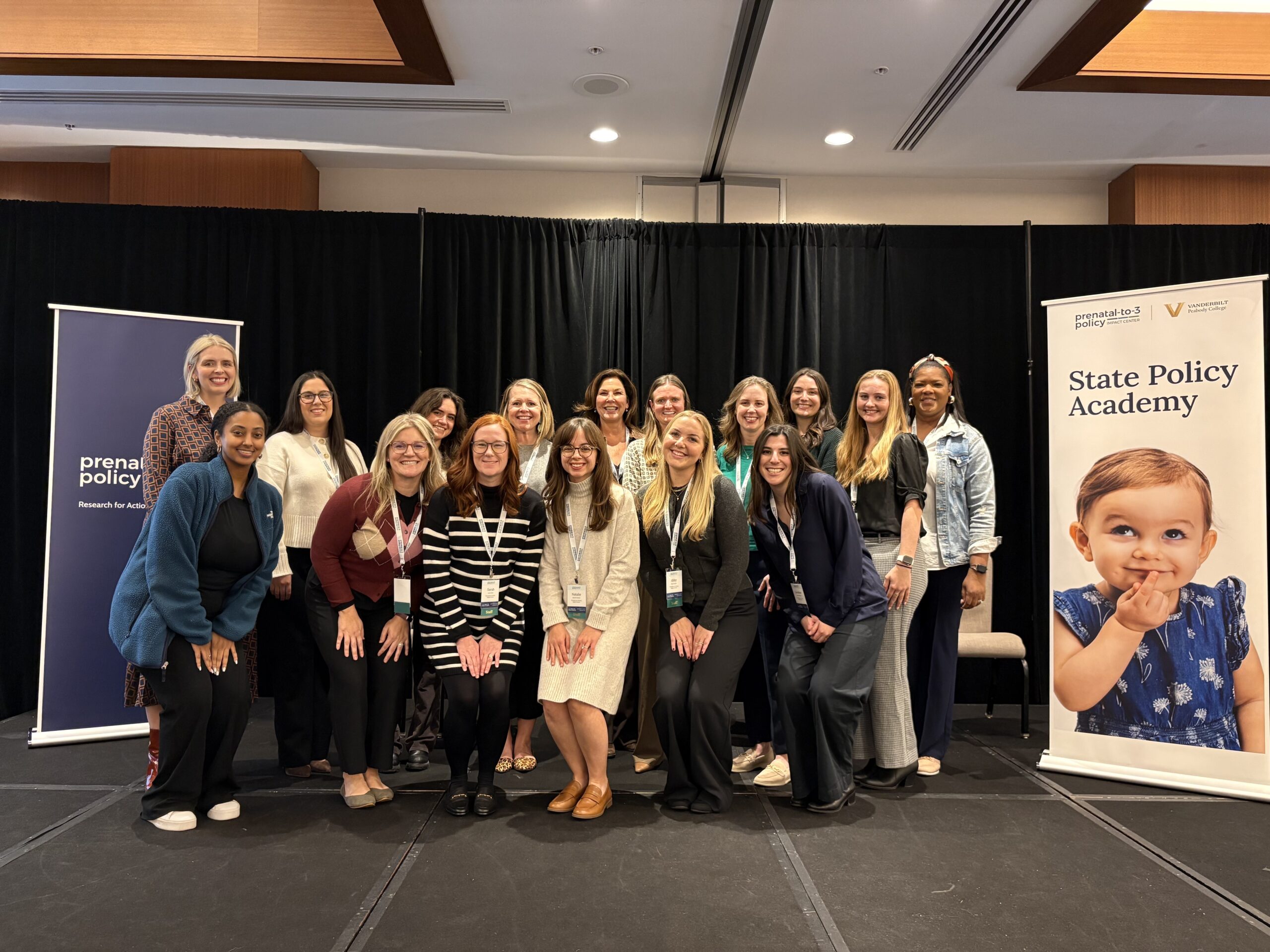Early Intervention (EI) programs, funded through Part C of the federal Individuals with Disabilities Education Act (IDEA) offer services for infants and toddlers (birth to age 3) with disabilities or developmental delays, regardless of family income.
Rigorous evidence suggests that EI services can improve children’s outcomes in areas including cognitive development, language skills, behavior, and motor skills.
This checklist covers the following policy levers states may consider to help maximize the effectiveness Early Intervention program:
- Capacity and access
- Eligibility criteria
- Characteristics of services
- Funding mechanisms
- Program governance and coordination




